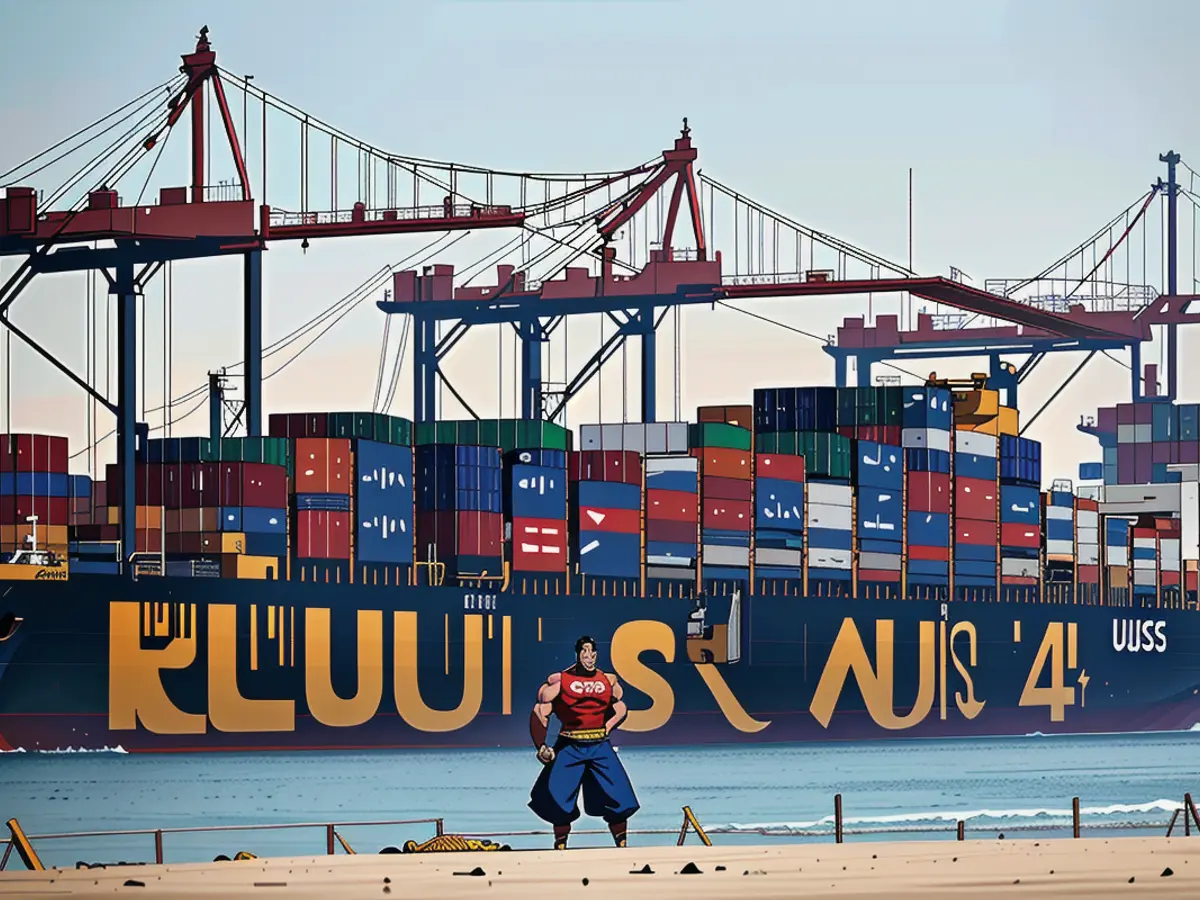Donald Trump's Policymaking Breeds Business Paralysis: An In-depth Analysis
Trump's Trade War: Faulty Rationale Underpinning Capricious Trade Actions
The Trump presidency has witnessed an ongoing debate on the impact of its policymaking on business investments and economic stability in the United States.
The Ambiguous Business Landscape
With every proclamation of major corporate investments as victories for his economic agenda, President Trump faces the risk of a chilling effect on businesses due to his unpredictable and frequently chaotic policies.
For instance, the opening act of the Trump presidency revolves around a cloak-and-dagger stage where CEOs find it challenging to make decisions with billions at stake. Particularly, they need stability and clarity to commit to years-long projects, something hard to come by during this tumultuous period.
Markets are witnessing a rollercoaster ride (with occasional false rumors-induced upswings), the trade war is escalating, and consumer confidence is taking a nosedive. John Graham, a finance professor at Duke University, voices his concerns, stating, "Without a doubt, this could freeze things rather than spur investment."
An Era of Unprecedented Uncertainty
In this uncertainty-laden era, business leaders cannot foresee the next ten minutes, let alone the following ten months. This ambiguity might lead them to retract hiring plans or even sanction layoffs. While some companies could choose to invest in domestic infrastructure to evade tariffs, others could shy away from investing altogether due to a lingering nervousness.
According to James Bullard, a former president of the Federal Reserve Bank of St. Louis, there's a possibility of history repeating itself in the form of a modern-day Smoot-Hawley Act — the notorious 1930 tariff hike that exacerbated the Great Depression. European nations retaliated by imposing their own tariffs, leading to a 40% drop in US imports within two years. "Who wants to invest when you don't know what the rules are going to be?" Bullard questions.
Mary Lovely, a senior fellow at the Peterson Institute for International Economics, expresses similar concerns, pointing out that the uncertainty level "is at a level many of us have never seen before." Even some pro-Trump critics are voicing their concerns about chaos leading to an economic standstill.
Bill Ackman, the billionaire hedge fund manager who endorsed Trump during the 2016 elections, cautions that tariffs could cripple business investment. He stresses that continued tariffs are equivalent to launching a "global economic war," destroying confidence in U.S. trading partners, businesses, and markets.
Complexities in planning stem from the fuzzy tariff landscape. Companies are failing to calculate the cost of their products due to uncertainty about tariffs on Mexico and China. Moreover, there's a lingering fear of retaliatory tariffs imposed by other countries and unpredictability about market demand.
Markets in Motion
While the market doesn't equal the economy, there's an undeniable link between them. US markets have experienced turbulent declines in reaction to the escalating trade war. The chaos has left investors rattled, affecting their spending patterns. The fallout? New investments cease, consumers curtail spending, and businesses are forced to reconsider investing and letting workers go.
The silver lining, if any, is the realization that it's tough to envision an environment less stable than the current one.
A Deregulatory Gamble
Meanwhile, the Trump administration's deregulation efforts, albeit applauded by some industries, have stoked concerns about environmental and financial stability. Deregulation in sectors like energy and finance has reduced compliance costs, but critics argue that the absence of oversight could lead to long-term environmental and public health issues.
In conclusion, Trump's chaotic policymaking has introduced a series of challenges for business investments and economic stability in the U.S., fostering an atmosphere of uncertainty that discourages long-term investment and threatens long-term economic health.
- Donald Trump's deregulatory measures in sectors like energy and finance, while applauded by some industries, have raised concerns about long-term environmental and financial stability.
- Amidst the turmoil caused by the trade war, unexpected tariffs on Mexico and China have made it difficult for companies to calculate the cost of their products, leading to a fear of retaliatory tariffs and uncertainty about market demand.
- As a result of the ongoing uncertainty and unpredictability in the business landscape, some businesses might retract hiring plans, while others could refrain from investing altogether, potentially contributing to an economic standstill.









